As we age, our body naturally produces less collagen, the protein responsible for the skin’s strength, structure, and elasticity. The rate at which collagen declines—causing sagging, wrinkles, aged spots, and uneven skin texture—is mostly down to your skin’s DNA, according to dermatologist and skin surgeon Dr. Carole Hazan. However, lifestyle and other factors can also accelerate premature aging and make you look older than you are. “My mantra for maintaining healthy skin, aiding rejuvenation, and having a youthful appearance is to eat a well-balanced diet with lots of vitamins and antioxidants, drink plenty of water, get adequate sleep, exercise regularly, and always use sunscreen, ” says Dr. Hazan.
1. Sun and Environmental Damage
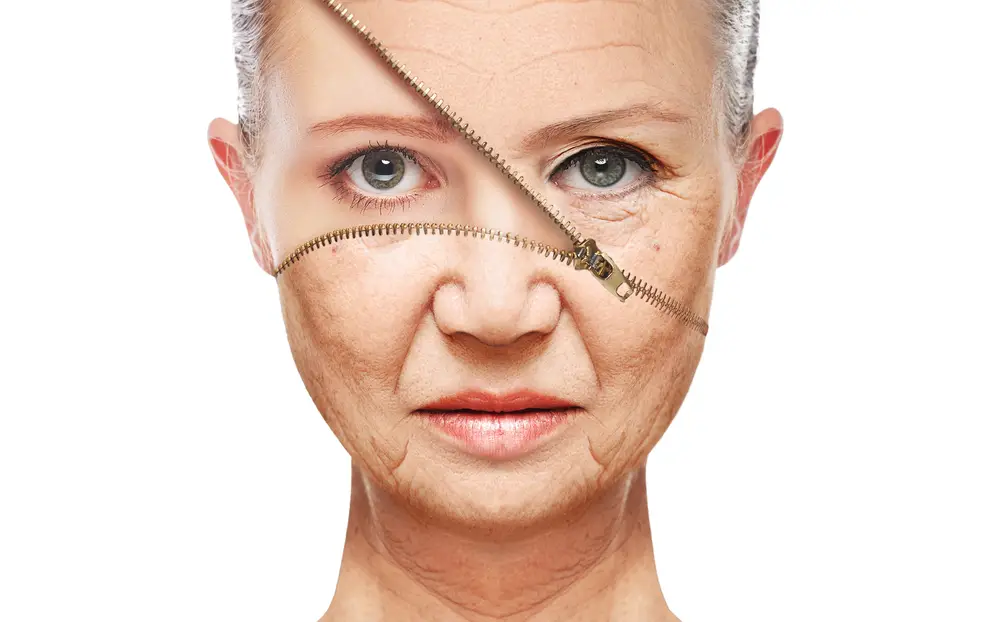
The sun’s UV rays are one of the biggest causes of premature aging. Excessive exposure to the sun without SPF, even on cloudy days, damages the skin cells and alters their DNA. This leads to a breakdown in the skin’s collagen and elastin fibers, making the skin less firm, resulting in wrinkles, pigmentation, uneven skin tone, age spots, and thinning. “My number one skincare tip to prevent premature aging is always apply SPF 30 whether you are in the sun or not,” says cosmetic dermatologist Dr. Hazan.
2. Smoking is a Skin Hazard
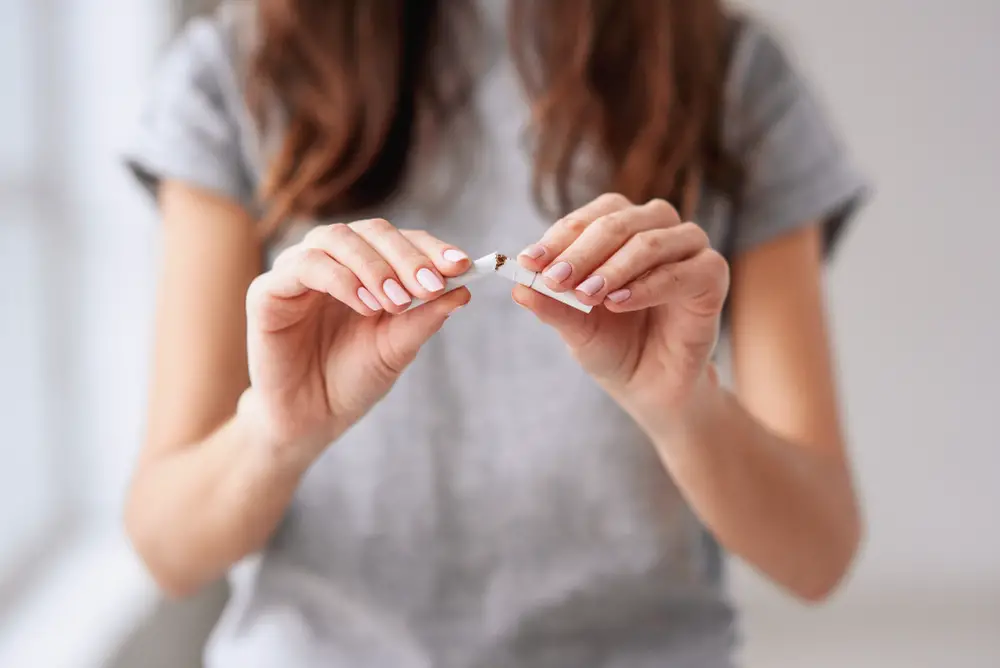
Cigarettes and vaping increase the production of metalloproteinase, an enzyme that breaks down the skin’s collagen and elastin, causing wrinkles and loss of firmness. Smoking also reduces blood flow to the skin cells, robbing them of vital oxygen and nutrients and dehydrating the dermis, leaving the skin looking dull and gray.
3. Drinking Excess Alcohol

Alcohol dehydrates the skin, causes inflammation, and depletes it of vitamins and nutrients causing premature aging. Because of its inflammatory properties and diuretic effect drinking alcohol makes the skin lose fluid and triggers the production of free radicals which destroy antioxidants. The result is dry, wrinkled, bloated, sagging, and dull skin.
4. Sunbathing and Using Tanning Beds

Sunbeds have been hailed as a treatment for those deficient in Vitamin D, which is important for our skin health. They also claim to detoxify the body, reduce stress, and boost circulation. Excessive exposure to UV radiation from tanning beds however can age and damage the skin cells and increase the risk of skin cancer. Overdoing it in the sauna can also be bad for the skin as it dehydrates the body and throws our natural electrolytes out of balance.
5. Stress Overload

Chronic stress affects the body on a cellular level and causes premature aging. When the body is under stress, it triggers an inflammatory response, releasing stress hormones like cortisol and adrenalin, breaking down collagen, and damaging the chromosomes responsible for preventing DNA degeneration. Prolonged stress can also exacerbate skin conditions like eczema, rosacea, acne, and psoriasis.
6. Gut Imbalances

Dr. Hazan also points out that poor nutrition deprives the body of the vital nutrients and antioxidants it needs for optimum skin health and to help protect it from free radical damage. If your diet is high in sugar this also causes inflammation which disrupts natural collagen and elastin production triggering premature aging and wrinkles.
7. Using Retinol A
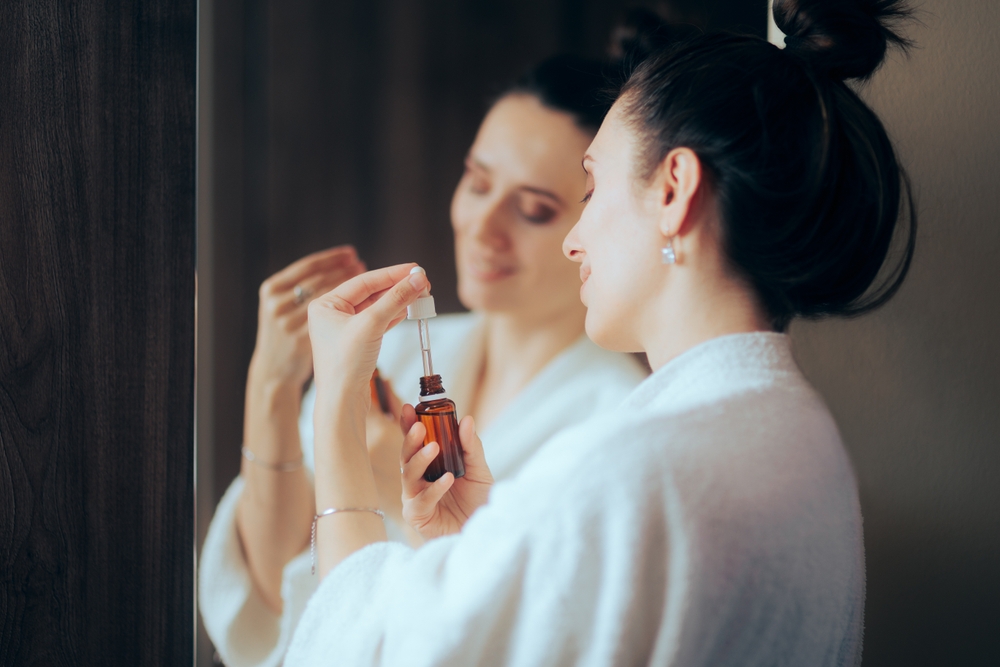
Retinol is an FDA-approved ingredient used to exfoliate the skin, boost collagen production, and reduce the signs of aging and acne. Because of its potent properties, retinol isn’t suitable for all skin types, especially sensitive ones, and overuse can weaken the skin’s barrier and cause irritation, redness, excessive dryness, and give the skin an older appearance. This highly active ingredient also makes the skin more vulnerable to sun damage which ages the skin.
8. Toxic Skincare
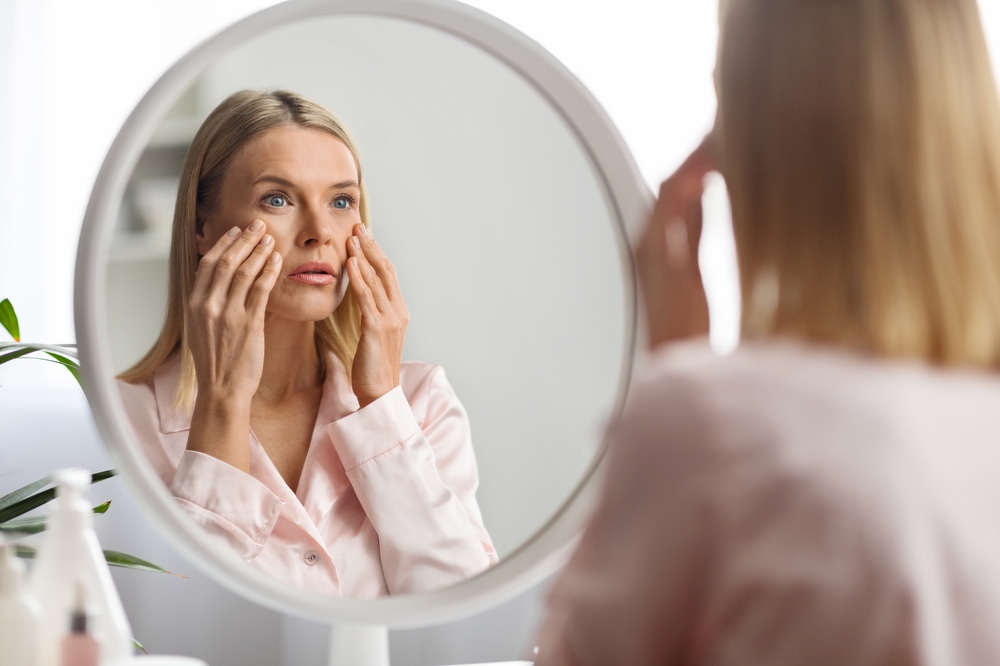
The skin is the body’s largest organ so use clean non-carcinogenic skincare products that are free of toxic chemicals like synthetic fragrances, sulfates, parabens, lead, formaldehyde, and methylene glycol. Toxic skincare ingredients can degrade collagen and elastin, disrupt the skin’s barrier, trigger inflammation, and dry out the skin which can cause thinning, wrinkles, breakouts, and redness.
9. Applying Heavy Foundation
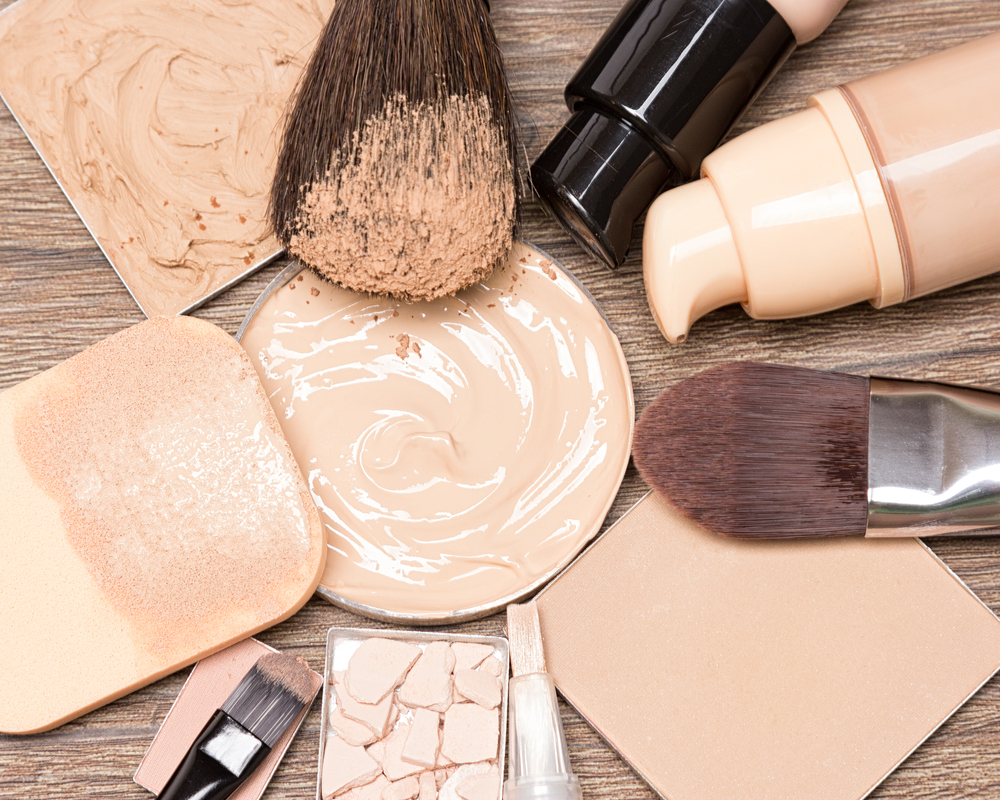
Along with using clean skincare make sure your makeup is also free of chemical nasties. It’s also important to adapt your makeup routine to your changing face as you age. “Applying thick, cakey foundation will settle into fine lines and wrinkles exaggerating signs of aging”, says makeup artist Katrina Raftery. Heavy matte-setting powders also create a harsher, older appearance.
10. Dehydrating Your Skin

Health experts advise women should drink 2.7 liters of water daily to keep their bodies and skin hydrated. Dehydration weakens the skin’s natural defenses leading to irritation, sensitivity, and premature aging. Without adequate water, the texture of your skin can become rough, tired, dull, and older in its appearance.
11. Over Exercising

Exercising regularly is important for your physical and mental health however overdoing it or subjecting your body to extreme workouts over 35 contributes to fat and muscle loss and your skin can become thin and sunken. This is known as “gym face.” Over-exercising without resting your body can also cause oxidative stress and free radical damage which breaks down collagen and elastin. And beware of working out in the sun as you are exposing yourself to UV damage which also contributes to premature wrinkles and aging.
12. Facial Expressions

Your skin naturally loses gravity as a result of the natural aging process but you can accelerate this gravitational pull with repeated facial expressions. Constant frowning, facial movement, and even smiling contribute to fine lines, sagging skin, and droopy eyelids.
13. Cleansing Incorrectly
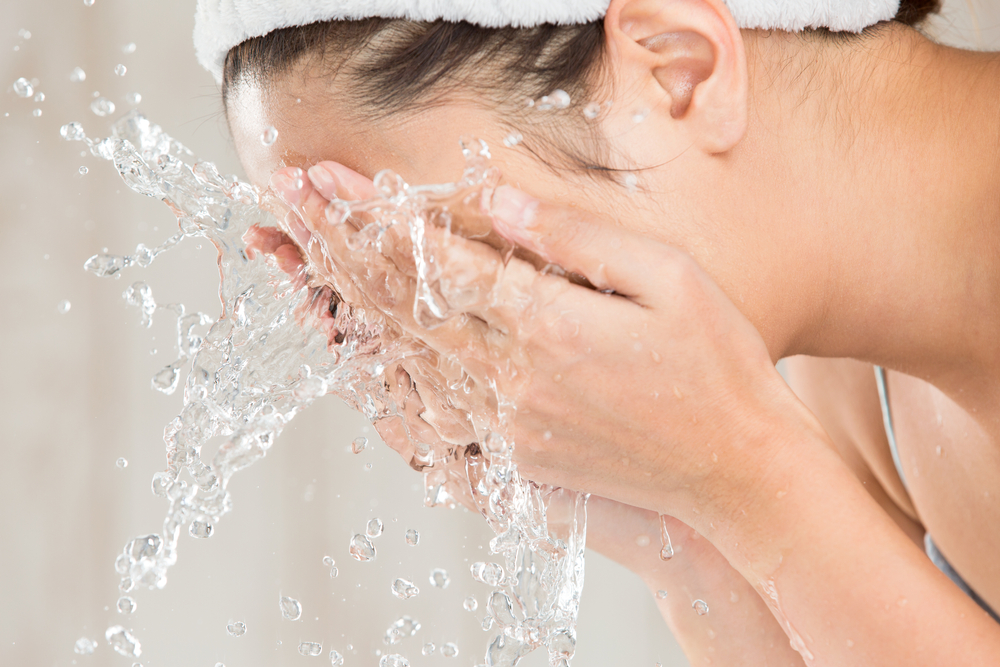
It’s important to keep your skin clean and hydrated, and many beauty experts advocate for a daily double cleanse. Skin is constantly exposed to dirt, sweat, pollutants, and bacteria, and this causes a build-up of debris. “If you don’t thoroughly wash and cleanse your face this leads to clogged pores, skin irritation, blemishes, and collagen damage which triggers premature aging, ” says skincare expert and holistic healer Monica Watters.
14. Harsh Exfoliation
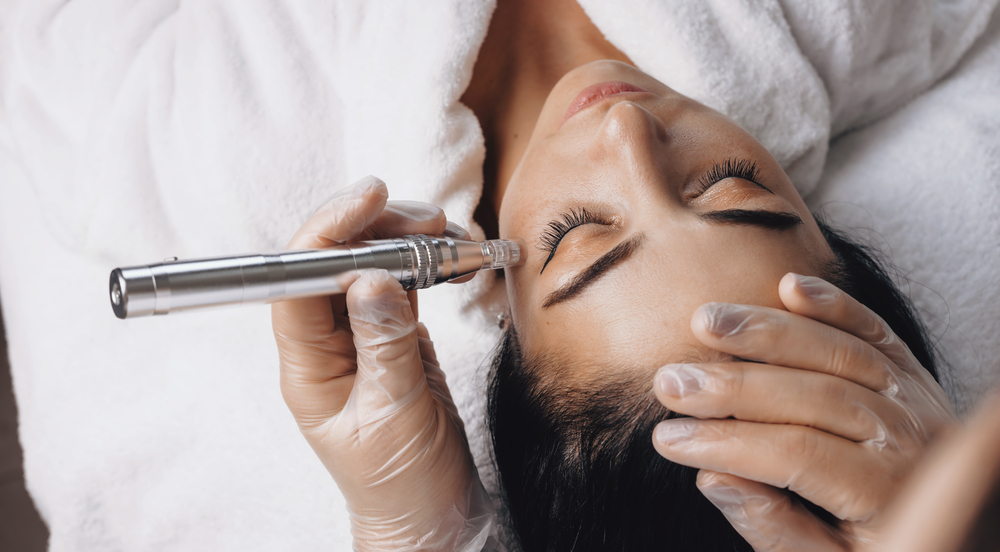
Exfoliating the skin to remove dead skin cells and allow your skincare products to penetrate deep beyond the epidermis is a good thing. Provided you don’t overdo it or use harsh exfoliating products. If you exfoliate too often or use products laden with chemicals it can strip the skin of its natural oils and damage the surface. This leads to a breakdown in collagen, loss of elasticity, dehydration, and irritation which speeds up the aging process.
15. Chemical Peels
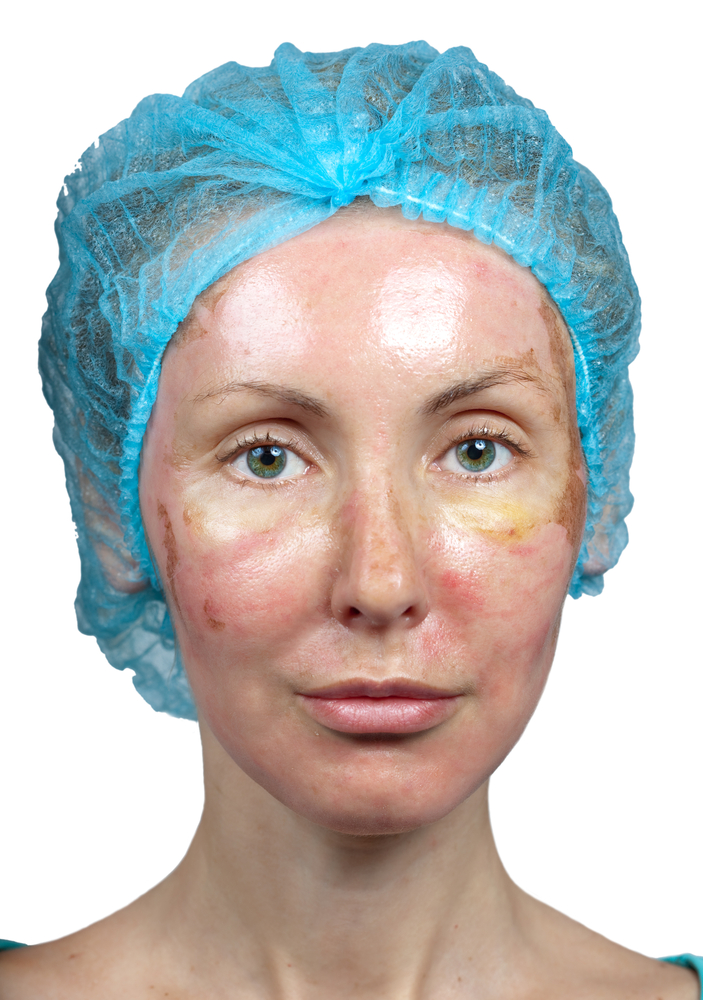
Chemical peels are cosmetic treatments designed to remove dead skin cells and damaged skin and reveal a new layer of smoother, younger-looking skin. It’s an evasive treatment however that injures the skin to kickstart its natural healing process. Some skincare experts warn that when you wound or damage the skin it can speed up aging and you can be caught in a cycle of wound and recovery. The side effects can be lasting redness, scarring, skin discoloration, and increased skin sensitivity.
16. Eye Damage
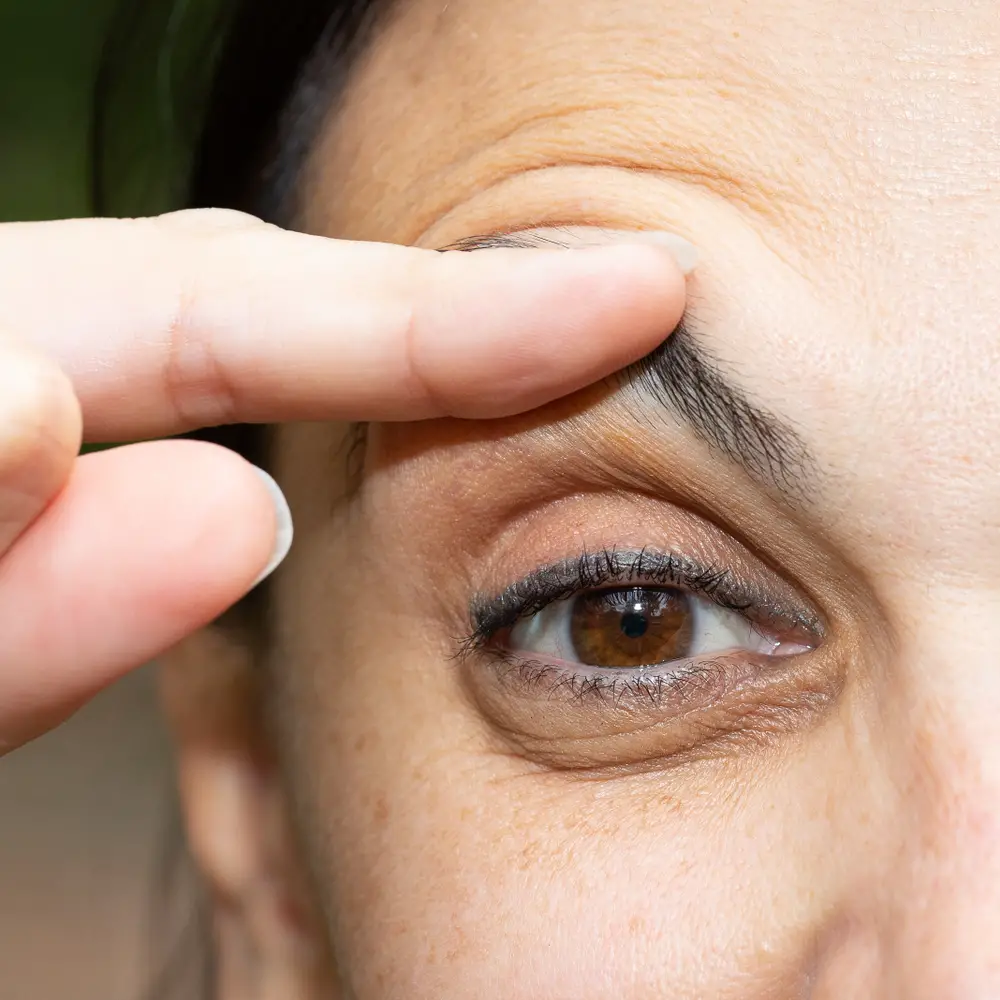
The skin around your eye area is finer and more delicate making it more susceptible to fine lines and wrinkles. You can speed up signs of aging around the eye area by not using an eye cream and by weakening the eye muscles which causes droopy eyelids. Rubbing your eyes, pulling on the skin, and subjecting your eyes to excessive screen time, reading, driving, air conditioners, and alcohol can contribute to premature aging. In an interview, Dr. Hazan told Travel Curator it’s important to look for ingredients like Vitamin C, peptides, and hyaluronic acids. “They stimulate the production of collagen and increase the skin’s ability to retain water, which smooths out fine lines and wrinkles.”
17. Sleep Disturbances

Sleep deprivation and poor-quality sleep can cause premature aging. When you don’t sleep enough, the body produces less collagen which weakens the skin’s structure, elasticity, and barrier function. A lack of sleep also affects the immune health and causes the body to produce more cortisol, a stress hormone that damages collagen and cellular regeneration.




